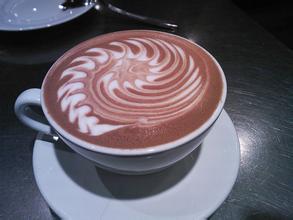Description of Indonesian civet coffee flavor introduction of roasting degree and grinding degree of varieties
"civets" are omnivores. They are withdrawn by nature and like to walk at night. They live in tropical rain forests, subtropical evergreen broad-leaved forests, mountain thickets or hills, mountains and grasses below 2000 meters above sea level. Its food includes small beasts, birds, amphibians and reptiles, crustaceans, fruits and seeds of insects and plants. The civet likes to choose the most mature, sweet, juicy coffee fruit in the coffee tree as food, while the coffee fruit passes through its digestive system and is digested only by the pulp on the outside of the fruit. The hard coffee beans are then excreted intact by the civets' digestive system. This is the "natural fermentation method" that was once scoffed by Americans. It is said that when Americans heard of such a way of making coffee, it was regarded as a fantasy, and it was not until it was reported by National Geographic magazine that they became interested in it.
It is said that coffee farmers in early Indonesia regarded civet cats that ate ripe coffee fruits as mortal enemies, but at some point someone began to think of picking coffee beans from the civet droppings to make coffee with unique flavor. Coffee experts everywhere have tried and were amazed. Since then, local farmers spend a lot of time collecting civet droppings in the forest every day during the coffee ripening season. The civet is a nocturnal animal that lives in the jungle. It eats very little, and coffee beans produced by wild civets are very rare. Only by artificial breeding can more Kopi Luwak be obtained. Some unscrupulous vendors keep the animals in small, dirty cages, forcing them to keep eating. they are on the verge of collapse, biting each other's companions, biting each other's legs and pulling blood. Tim Carman, a food columnist for the Washington Post, has commented on Kopi Luwak sold in the United States and concluded, "it tastes like Folger coffee." It's like rotten, lifeless taste. It's like petrified dinosaur shit in bath water. I can't finish it. "
The civet likes to choose the most ripe, sweet, juicy coffee fruit in the coffee tree as food. The coffee fruit passes through its digestive system, and only the pulp on the outside of the fruit is digested, and the hard coffee beans are then excreted intact by the civet's digestive system.
In this way, in the process of digestion, the coffee beans have an unparalleled magical change, the flavor tends to be unique, the taste is particularly mellow, and the rich, round and sweet taste is also incomparable to other coffee beans. This is because the civets' digestive system destroys the protein in the coffee beans, making the coffee produced by the protein much less bitter and increasing the round taste of the coffee beans.
Eva, the owner of Special Cafe, is a coffee enthusiast who travels around the world every year in search of rare goods. She told reporters that the "Kopi Luwak" was once a tribute from Indonesia to the Dutch royal family. At that time, the industry regarded the coffee with the name of "cat shit" as a joke, and it was not until it was specially reported by National Geographic that people became interested in the Kopi Luwak.

Important Notice :
前街咖啡 FrontStreet Coffee has moved to new addredd:
FrontStreet Coffee Address: 315,Donghua East Road,GuangZhou
Tel:020 38364473
- Prev

Description of the flavor of Tanzanian coffee with refreshing acidity introduction to the degree of baking and grinding of varieties
Due to geographical location as well as economic and political reasons, people outside Tanzania believe that Dar es Salaam is the capital of Tanzania. In fact, Dar es Salaam is not the capital of Tanzania. It was the capital of German East Africa from 1891 to 1916. It was the capital of Tanganyika from 1961 to 1964 and later the capital of Tanzania. In 1974, the Tanzanian Parliament decided to take the lead.
- Next

Rich and sweet Peruvian coffee roasting degree, grinding degree, flavor description, manor introduction
Peruvian coffee market: the private Peruvian Coffee exporters Association (ComeradeExportadoresdeCafedelPeru) has been established, which is committed to improving the quality of coffee, and its primary task is to set standards and eliminate inferior products, thus creating an atmosphere of quality supremacy. This positive move heralds a bright future for the coffee industry. After that, as prices rose, farmers were also encouraged.
Related
- Detailed explanation of Jadeite planting Land in Panamanian Jadeite Manor introduction to the grading system of Jadeite competitive bidding, Red bid, Green bid and Rose Summer
- Story of Coffee planting in Brenka region of Costa Rica Stonehenge Manor anaerobic heavy honey treatment of flavor mouth
- What's on the barrel of Blue Mountain Coffee beans?
- Can American coffee also pull flowers? How to use hot American style to pull out a good-looking pattern?
- Can you make a cold extract with coffee beans? What is the right proportion for cold-extracted coffee formula?
- Indonesian PWN Gold Mandrine Coffee Origin Features Flavor How to Chong? Mandolin coffee is American.
- A brief introduction to the flavor characteristics of Brazilian yellow bourbon coffee beans
- What is the effect of different water quality on the flavor of cold-extracted coffee? What kind of water is best for brewing coffee?
- Why do you think of Rose Summer whenever you mention Panamanian coffee?
- Introduction to the characteristics of authentic blue mountain coffee bean producing areas? What is the CIB Coffee Authority in Jamaica?

